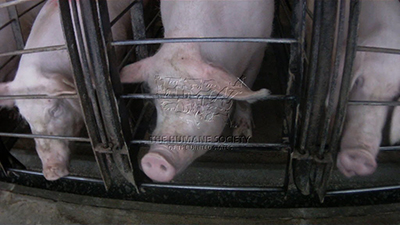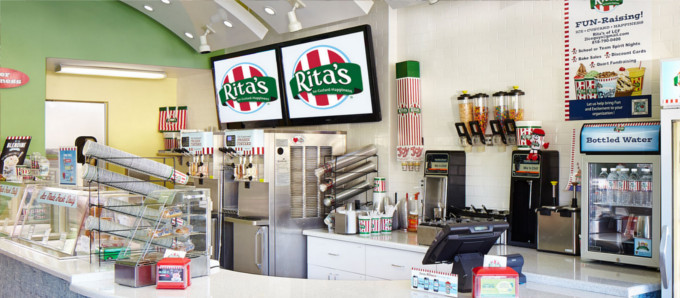Announcement from Delhaize America Further Demonstrates Elimination of Controversial Pig Cages Is Near

The country’s ninth-largest grocer, Delhaize America, announced that it will require its pork suppliers to produce reports regarding their progress in eliminating from their pork supply chains the use of gestation crates—cages used to house breeding pigs that are so restrictive, the animals can’t even turn around. The Humane Society of the United States applauded the move. Delhaize has more than 1,500 locations under the Food Lion, Hannaford and Bottom Dollar brands.
“Consistent with its commitment to animal welfare, Delhaize America is encouraging supplier efforts to eliminate gestation stall housing for sows and move to open pen solutions,” states Delhaize in a news release. “The company is asking all suppliers to report in 2014 on their progress in this direction.”
Delhaize is one of 60 major food companies working to eliminate gestation crates from their supply chains and throughout the pork industry; others include McDonald’s, Burger King, Safeway, Target, Costco and Oscar Mayer.
“We’re pleased that Delhaize has made their opposition to gestation crates clear,” said Josh Balk, HSUS’ director of food policy. “There’s simply no future for pork producers who want to continue locking pigs in these inhumane, outdated cages.”
Delhaize America is one of 60 food companies that have mandated an end to gestation crates in their supply chains. This list includes McDonald’s, Burger King, Costco, Kroger, Oscar Mayer, Johnsonville Sausage, and Sysco.
Delhaize’s announcement, along with the dozens of other food companies that are eliminating gestation crate pork, signals a reversal in a three-decade-old trend in the pork industry that leaves most breeding pigs confined day and night in gestation crates during their four-month pregnancy.
These cages are roughly the same size as the animals’ bodies and designed to prevent them from even turning around. The animals are subsequently transferred into another crate to give birth, re-impregnated, and put back into a gestation crate. This happens pregnancy after pregnancy for their entire lives, adding up to years of virtual immobilization. This confinement system has come under fire from veterinarians, farmers, animal welfare advocates, animal scientists, consumers and others.
World-renowned animal scientist and meat industry advisor Temple Grandin, Ph.D., states, “Gestation crates for pigs are a real problem… Basically, you’re asking a sow to live in an airline seat … I think it’s something that needs to be phased out.”
Nine states have passed laws banning gestation crates, as has the entire European Union. Australia, New Zealand, South Africa and India have also either banned gestation crates or their country’s pork industry is voluntarily eliminating them.
About The HSUS
The Humane Society of the United States is the nation’s largest animal protection organization, rated the most effective by its peers. Since 1954, The HSUS has been fighting for the protection of all animals through advocacy, education and hands-on programs. We rescue and care for tens of thousands of animals each year, but our primary mission is to prevent cruelty before it occurs. We’re there for all animals, across America and around the world. Celebrating animals and confronting cruelty — on the Web at humanesociety.org.







